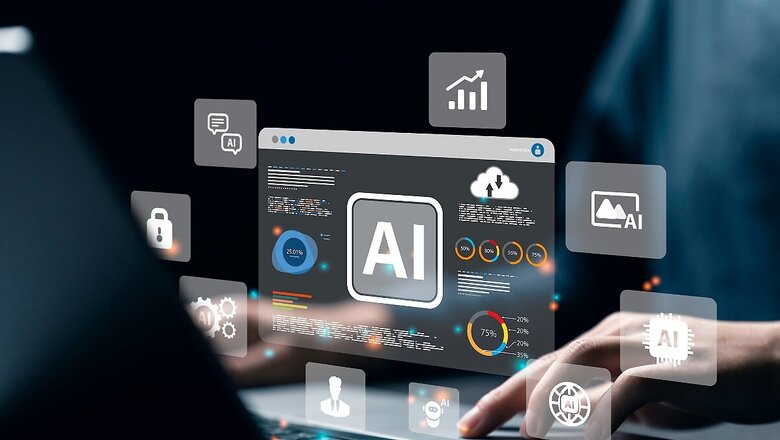
views
Artificial Intelligence (AI) has been infiltrating almost every aspect of our lives, and its impact on democracy is already being felt in ways that are both exciting and unnerving. If not carefully managed, AI has the potential to become a powerful tool for spreading disinformation, manipulating public opinion, and fuelling the kind of polarisation that weakens the very foundations of democratic societies. This was highlighted by UN Secretary-General António Guterres during the International Day of Democracy on September 15, reflecting the growing concern that AI, without proper governance, could destabilise political systems.
Imagine scrolling through social media and seeing a convincing video of a politician saying something outrageous—except they never said it. This is the unsettling world of deepfakes, and it’s just one of the ways AI can be weaponised to distort reality, particularly during election seasons.
This danger is not some distant hypothetical. With over 50 countries including the United States of America holding elections this year, AI’s unchecked influence could push societies toward chaos. Algorithms that prioritise sensational content for engagement could amplify extreme views and create echo chambers, leaving citizens stuck in digital bubbles that reinforce existing biases. The stakes are high. Public trust in democratic institutions is already fragile, and AI could easily exacerbate that fragility.
But here’s the thing: AI isn’t inherently a villain in this story. In fact, it has enormous potential to enhance democracy if we wield it wisely. Picture a world where AI-driven platforms help citizens stay informed about policy changes in real time, allowing them to voice their concerns directly to decision-makers. Imagine governments being held to a higher standard of transparency, with AI monitoring budgets, flagging inconsistencies, and helping the public hold leaders accountable. Used thoughtfully, AI could democratise access to information and empower citizens to engage more actively in the political process.
However, this ideal future won’t just fall into our laps. We need robust, forward-thinking regulations to make sure AI works for us, not against us. This isn’t just a national challenge—it’s a global one. Without proper governance, AI could deepen societal divisions and undermine trust in the very systems it’s supposed to support. We’ve seen what happens when technologies grow faster than our ability to regulate them: chaos, misinformation, and harm. Do we really want AI to follow that same path?
One aspect of this debate that requires urgent attention is how AI could exacerbate gender inequality, particularly in politics. Women’s voices remain underrepresented in leadership positions globally, and AI has the potential to worsen this issue. We are already witnessing an increase in online violence against women in public life—troll armies and coordinated attacks aimed at silencing female leaders. If left unregulated, AI could intensify these threats by automating and amplifying harmful stereotypes. For democracy to truly thrive, we must ensure that AI is designed and governed in a way that promotes equality, not deepens existing divides.
What’s encouraging is that some of these issues are being taken seriously on the global stage. What we need are global discussions on AI governance that offer a chance to get ahead of this problem before it spirals out of control. But let’s be clear, time is not on our side. The more we delay action, the harder it will be to rein in the negative impacts of AI.
Ultimately, the future of democracy depends on how we choose to govern AI today. Will it be a tool for transparency, inclusion, and accountability? Or will it become a weapon of division, distortion, and manipulation? The answer lies in the choices we make now. We have the opportunity—and the responsibility—to ensure AI strengthens democracy, not undermines it. Let’s not squander it.
The author works at Network18 and is an alumnus of Bharti Institute of Public Policy. Views expressed in the above piece are personal and solely that of the author. They do not necessarily reflect News18’s views.




















Comments
0 comment